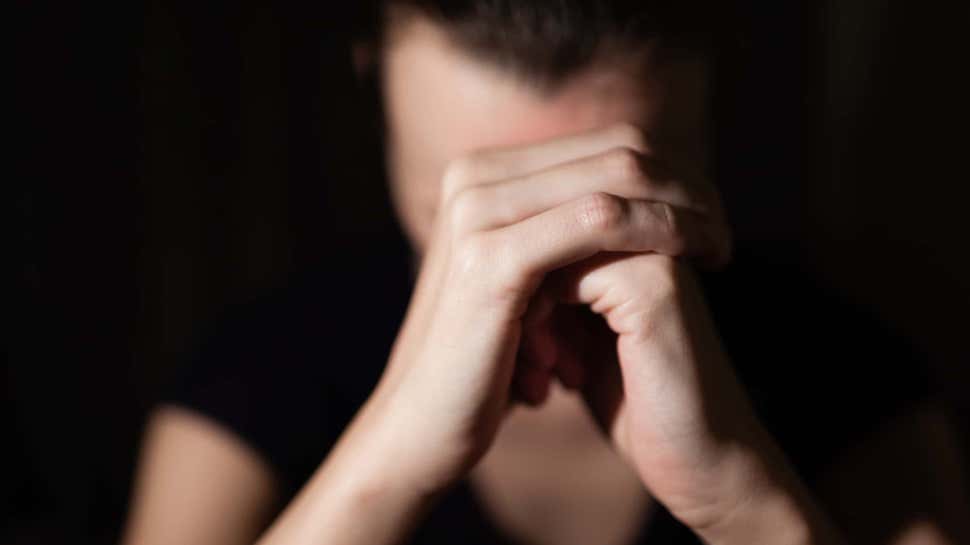
Drug-Induced Psychosis and Addiction
Psychosis is a severe mental health condition that affects a person’s ability to tell the difference between what is real and what is not. Drug-Induced Psychosis (DIP) occurs as a result of drug or substance use or abuse. Symptoms of DIP usually subside when the effects of the drug wear off; however, in some cases, symptoms can continue for years after drug use has ceased. Addiction can complicate matters, because it can make it hard to stop the use of drugs, alcohol, and/or prescription medication. Drug-induced psychosis is treatable and often requires residential care to address issues related to addiction, detoxification, and withdrawal. With intensive treatment, it is possible to reduce or eliminate symptoms.
What Is Drug-Induced Psychosis?
Drug-induced psychosis refers to the inability to tell reality from what is imagined, which is typically brought on by substance abuse.
Symptoms usually include delusions, a strong belief in something that is not based in reality, and hallucinations (seeing or hearing things that other people cannot see or hear).
Substances that can cause DIP include alcohol, prescription medications, and illicit drugs. Episodes can be caused by mixing drugs or through chronic substance abuse, and usually occur while the user is intoxicated or experiencing withdrawal.
For some people, DIP can develop into a mental health condition known as substance-induced psychotic disorder. The disorder is characterized by the following elements:
- A severity of psychosis significantly higher than what would be expected during intoxication or withdrawal
- Hallucinations or delusions that begin within one month of intoxication or withdrawal from a substance known to cause psychosis
- Psychosis that is not a result of a mental health issue, such as schizophrenia or bipolar disorder
Types of Drug-Induced Psychosis
Drug-induced psychosis can occur with the use or overuse of various substances. Most symptoms subside when the use of the drug has stopped. However, in some circumstance, symptoms may persist for weeks, months, or even years after drug use has been discontinued. Common types of substance-induced psychosis and their symptoms include the following:
Marijuana-induced psychosis generally refers to psychosis caused by cannabis use. There are more than 70 forms of cannabinoids, of which THC and CBD are two. Between 20 and 50 percent of users experience a psychotic episode during intoxication. Symptoms include paranoia, anxiety, disorganized thinking, depersonalization, derealization, persecutory as well as grandiose delusions, and auditory/visual hallucinations. Symptoms generally last beyond the time of intoxication and require some form of clinical intervention.
Methamphetamine (meth-induced) psychosis can cause persecution delusions, paranoia, and hallucinations—both auditory and visual. After drug use has stopped, symptoms can last for weeks or longer and can return in times of stress, even after prolonged periods of abstinence.
Cocaine-induced psychosis can occur in about half of users and increases when the drug is freebased or injected. Symptoms include persecution delusions and tactile hallucinations, like the feeling something is crawling on one’s skin, and can last months or years after the drug use has ceased.
Alcohol-induced psychosis can cause mental confusion, disorganized speech, disorientation, and delusions. It is one of the most commonly abused substances used by people after being diagnosed with schizophrenia. Symptoms usually subside when alcohol is no longer used.
Psychosis caused by use of hallucinogens, like LSD, PCP, or ecstasy, generally occur after repeated use of the substance and can cause anti-social, violent behavior or panic attacks. Initially, symptoms are brief and last only until the drug wears off. But after prolonged use, psychosis can become more pronounced and long-lasting.
Facts and Statistics
Addiction and mental health issues often co-occur. In fact, in 2015,more than 21 million Americans age 12 and over suffered from a substance abuse problem the previous year, and more than 8 million adults had a mental health illness that co-occurred with their addiction. In the same year, about 2.6 million Americans had a serious mental health illness that co-occurred with a substance abuse disorder. About 3.5 percent of the population experienced an episode of psychosis.
Some drugs can have a greater influence on the development of psychosis and mental health disorders than others. For instance, people who abuse cocaine, marijuana, amphetamines, hallucinogens, or opiates are more likely to experience psychosis associated with the use of, or withdrawal from, the drug. And people who are heavy marijuana users are at greater risk for the onset of schizophrenia. They are up to six times as likely to develop the disorder than nonusers. Another study linked marijuana use to development of both schizophrenia and bipolar disorder.
More than 47 percent of heavy marijuana users developed either schizophrenia or bipolar disorder, and half did so within about 3.5 years or 4.4 years, respectively, of experiencing a psychotic reaction.
Illicit drugs commonly associated with episodes of psychosis during use or withdrawal include:
- Cocaine
- Marijuana
- Methamphetamine
- Amphetamines
- Opiates
- Hallucinogens, such as LSD and ecstasy
- Alcohol
Prescription medications that can cause psychosis during use or abuse include:
- Antidepressants
- Anticonvulsants
- Medications to treat Parkinson’s
- Muscle relaxers
- Antihistamines
- Chemotherapy drugs
Symptoms and Diagnosis of Drug-Induced Psychosis
The most common symptoms of substance-induced psychosis include delusions and hallucinations. The hallucinations can be auditory, visual, or tactile. Other symptoms include paranoia, anxiety or agitation, depersonalization, disorientation, and disorganized thinking. Symptoms usually appear quickly during intoxication or withdrawal and subside when the drug wears off. Recurrence of psychotic episodes often occurs when the drug is used again.
To be diagnosed with drug-induced psychosis, there must be pronounced delusions or hallucinations that do not occur solely during delirium associated with withdrawal. Additionally, the individual must be unaware the psychosis is substance-induced. Symptoms must be a result of drug or alcohol use and not attributable to a medical or mental health illness.
Overdose and Psychosis
Addiction to alcohol, prescription medications, or illicit substances tends to increase the risk of overdose of those substances and episodes of psychosis. In 2011, there were more than 5 million drug-related emergency room (ER) visits. About half were attributable to substance misuse or abuse. Current studies have shown an increase in the use of illicit substances and ER visits. For instance, between 2009 and 2011, ER visits involving marijuana and prescriptions medications (most commonly for anxiety, insomnia, or pain relief) more than doubled. ER visits involving stimulants rose 68 percent. Psychosis was often reported as a symptom in emergency intervention, particularly with marijuana use.
In situations involving overdose and/or psychotic episodes, it is essential to seek medical help to avoid additional dangers associated with both.
Causes and Risk Factors
People who are addicted to prescription medication, alcohol, or other substances are at greater risk for developing drug-induced psychosis. The chances of experiencing psychosis increase as the drug use becomes heavier or persists as a chronic behavior.
Certain drugs are more likely to cause psychosis than others. Illicit substances, like methamphetamines, cocaine, marijuana and LSD, are known to alter reality or induce hallucinations, which is part of the appeal. However, many of these drugs can readily induce symptoms of psychosis that are significantly more pronounced than what is generally expected during intoxication. These situations usually require clinical intervention.
Although DIP is most often associated with use of illicit substances, it can be caused unintentionally by mixing medications that are contraindicated. It can also be caused by the proper use of prescription medications known to cause psychosis, such as antidepressants, chemotherapy medications, and pharmaceuticals used to treat Parkinson’s.
People with a family history of psychosis, traumatic brain injury, or other genetic factors may also be at greater risk for developing DIP after drug use.
Withdrawal and Detox
Substance abuse does not always lead to addiction, but it is extremely common. When a person has a substance addiction, his or her body typically goes through withdrawal if the substance use is abruptly stopped. The individual will most likely experience both physical and emotional withdrawal. But physical withdrawal can cause psychotic episodes as the body detoxifies itself of the substance.
Other common signs of withdrawal include:
- Rapid heart rate
- Sweating
- Difficulty breathing
- Muscle tension
- Tremors
- Nausea or vomiting
- Diarrhea
Many substances can cause psychosis during withdrawal and detox, but the most common is alcohol. Alcohol-induced psychosis associated with withdrawal usually occurs during Delirium Tremins (DT). DT is considered a life-threatening condition and requires immediate medical attention.
Withdrawal from other substances that cause psychosis can also be very dangerous. Whether DIP is alcohol-induced, meth-induced, marijuana-induced, or caused by any other substance, it is important to get medical treatment to prevent additional dangers. People experiencing psychotic episodes could be at risk for other harm, because their perception of reality is severely altered, and symptoms of psychosis can last for prolonged periods. Generally, people experiencing DIP need to be sedated or closely monitored until the symptoms of psychosis and withdrawal subside.
Co-Occurring Disorders
Substance abuse, bipolar, schizophrenia, and major depression are co-occurring disorders associated with development of psychosis. It is not clear whether addiction and substance abuse tends to cause mental health issues, or if mental health conditions lead to the development of substance abuse issues, but the two are inextricably connected. Nearly 50 percent of people who suffer from schizophrenia also have a substance abuse disorder. And nearly 47 percent of people who abuse marijuana develop either schizophrenia or bipolar disorder.
Complications can arise from these co-occurring disorders, because they each tend to worsen the symptoms of the other. In other words, mental health disorders worsen substance abuse symptoms and vice versa.
In addition, the risk for experiencing psychotic episodes increases significantly when both mental health conditions and substance use are present and can cause psychosis.
Treating co-occurring psychosis and substance abuse can be difficult, because the psychosis often interferes with the desire to work toward change. However, with intensive treatment, symptoms associated with mental illness, substance abuse, and psychosis can be reduced or even eliminated.
Drug-Induced Psychosis and Addiction Treatment and Prognosis at Alta Mira
To prevent drug-induced psychosis, it is essential to treat the underlying issue of substance misuse or abuse.
World-class drug addiction rehab can be very helpful when treating drug induced psychosis. Individualized programs at Alta Mira Recovery are created to address mental and medical health issues in a safe, nurturing environment. Treatment generally focuses on psychotherapy to address any root issues that may be leading to substance abuse. Therapy also works to teach new skills to manage daily life stress, as well as major events and significant stressors. In our residential treatment programs, any co-occurring mental health conditions can also be addressed and treated.
We understand that treatment can be difficult due to the nature of addiction coupled with psychosis and the potential for the presence of co-occurring disorders. But, with time and hard work, treatment can be effective.
Relapse Prevention
Relapse prevention is an integral part of any plan for continued sobriety. It begins just after intensive therapy ends and is designed to give ongoing support as people transition back into their daily lives. Our programs seek to provide a network of support that helps with:
- Implementing relapse prevention plans
- Developing and maintaining positive social interactions
- Developing self-esteem and tools to increase individual empowerment
- Stress reduction techniques
- Support during major life crisis
Maintaining a network of support is an important part of the recovery process at Alta Mira. Regular interaction with other people who understand and recognize common issues, stressors, and triggers, and who can offer moral and emotional support, can be essential to sustaining sobriety.
Staff Dedicated to Exceptional Care
From the leadership team to program managers and primary therapists, we understand how important our team is to clients’ experiences. That’s why every member of our staff is chosen for their ability to provide clients with the most advanced care possible and their dedication to delivering an extraordinary treatment experience.
Renowned experts Dr. Steven Batki and Dr. Helen “Py” Discroll, along with other members of our world-class team, have more than 50 years’ combined experience as the best clinician leaders focused on improving treatment and outcomes for substance use disorders. Their research and focus have helped to make Alta Mira’s outcomes among the best in the United States—and similarly, the best verified outcomes for patients who have been difficult to treat or failed in treatment elsewhere.






